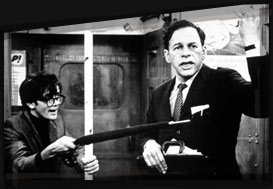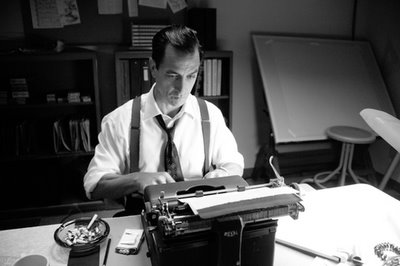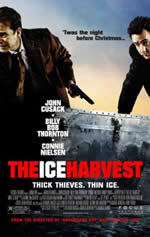We've Moved!
I know what you came here looking for and aren't finding. Let me hasten to add - it's here! Sure, it's only mp3s with cryptic references and glossy images now, but it'll be the temp-to-perm home of The Dark of the Matinee unless I decide to create a dedicated film blog. Meanwhile, update your links.
The bad news is that these "articles" won't be making the trip. Read up as much backstory as you like, and we'll be shutting these doors very shortly. You see, it's Blackmail Is My Life's 2nd birthday and it would be The Matinee's first. Pump the celebratory music into the house and let's dance!
[Oct 18, 2006 EDIT] Thanks to Wordpress, this whole site was transferred to "miscellany" at Blackmail Is My Life some time ago. I think it's time to shut this down and move on. However, keep an eye open for Blackmail version 1.5 coming soon! [I know, starting a new blog in January, bored with the format by October? Pretty sweet, right? Expect changes.]
The bad news is that these "articles" won't be making the trip. Read up as much backstory as you like, and we'll be shutting these doors very shortly. You see, it's Blackmail Is My Life's 2nd birthday and it would be The Matinee's first. Pump the celebratory music into the house and let's dance!
[Oct 18, 2006 EDIT] Thanks to Wordpress, this whole site was transferred to "miscellany" at Blackmail Is My Life some time ago. I think it's time to shut this down and move on. However, keep an eye open for Blackmail version 1.5 coming soon! [I know, starting a new blog in January, bored with the format by October? Pretty sweet, right? Expect changes.]




